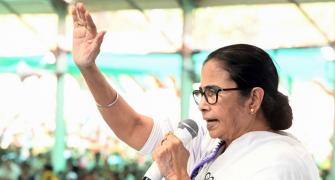The report by the UN Education, Scientific and Cultural Organisation also said that primary school enrolments increased significantly in much of the developing world over the past few years, but high costs continued to limit access to education.
An estimated 72 million children of primary school age, about 10 per cent of the world's children of that age group, still do not attend any school, but the figure is down sharply from 96 million almost a decade ago.
The UNESCO reported an improvement in the percentage of girls attending classes and the amount of money spent on education, but said adult illiteracy levels still remain 'stubbornly high' because of rising population and cost of schooling.
The report card presented especially for developing countries, including India and China, showed that world might not be able to reach the Millennium Development Goal of primary education for all by 2015 unless resources and major efforts are committed.
According to the report, India has made major strides to combat illiteracy, but owing to several factors, including population increases, the actual number of illiterate people has not fallen.
But China's well-targetted, domestically funded programmes aimed at geographic areas and specific age groups, with systematic follow-ups, had made the country the region's highest achiever, the report said.
More than three-quarters of illiterate people live in just 15 countries, including eight of the nine high-population countries -- India, China, Pakistan, Bangladesh, Indonesia, Brazil, Egypt and Nigeria, the report said.
It noted that adult literacy rates have increased in most of them since the 1985-94 decade, but continuing growth in population in some, including Bangladesh, have increased the number of illiterates in absolute numbers.
In China, the number of adult illiterates dropped sharply by 98 million which largely accounts for rise in literacy rates in developing nations, it said. "China's achievements stem from sustained increases in primary school participation, highly targetted literacy programmes and development of a literate environment."
Globally, the report said, there are 89 literate women for every 100 literate men, but disparities are still marked in south and west Asia, which have 67 literate women for every 100 men. Arab states fare better with a ratio of 74:100 as do sub-Saharan Africa at 76:100.
The report showed that primary school enrolment jumped by 39 per cent in sub-Saharan Africa and 22 per cent in south and west Asia, the two regions struggling the most to achieve 'education for all' between 1999 and 2005.
Briefing reporters, Nicholas Burnett, UNESCO's assistant director-general for education, said at least 11 of the 25 countries posting the most rapid enrolment gains during the period had abolished school fees.
The UNESCO report said that while primary school enrolments had increased in India, adult illiteracy rates remain high as a result of factors such as high population and cost of schooling.







